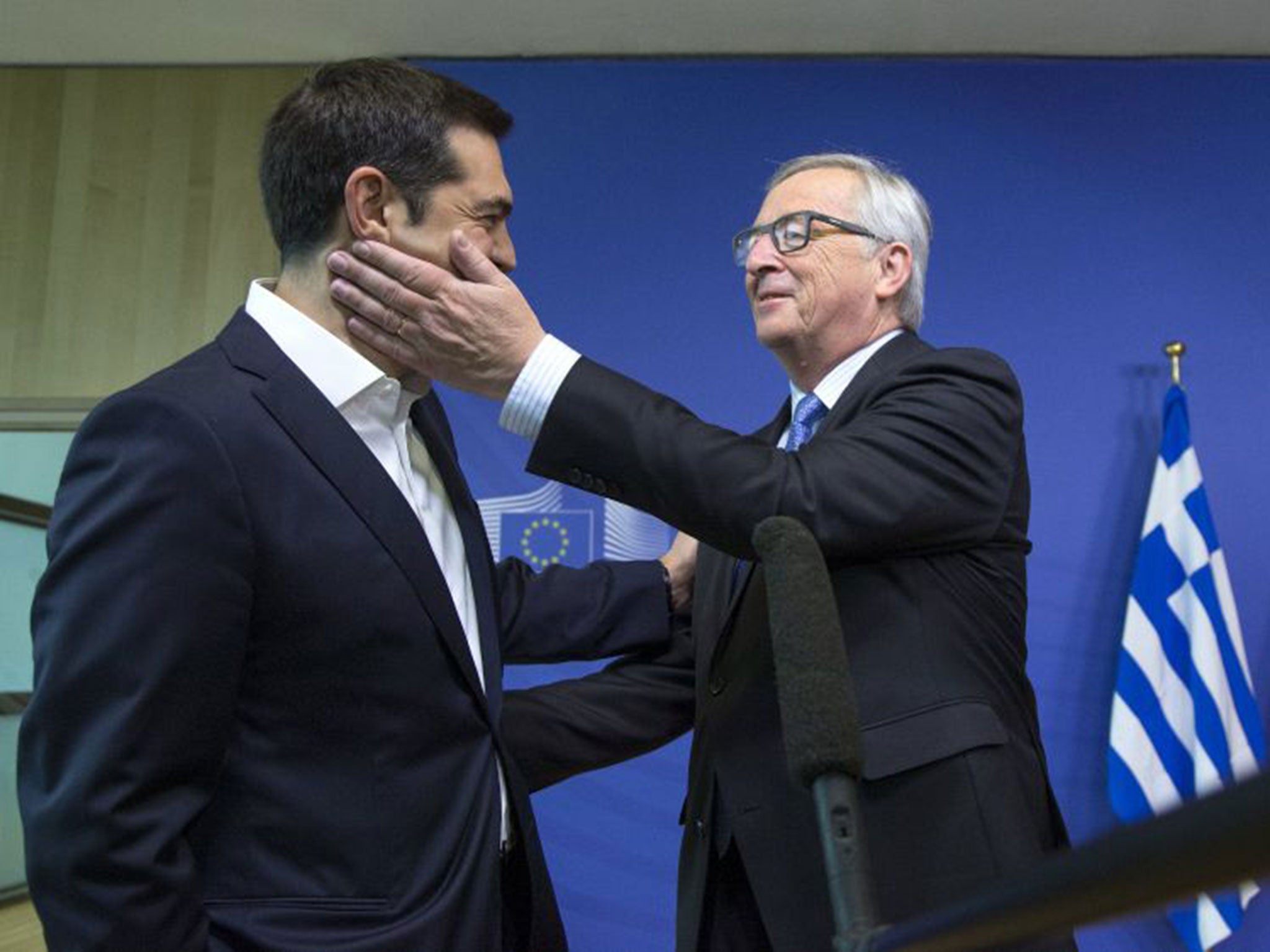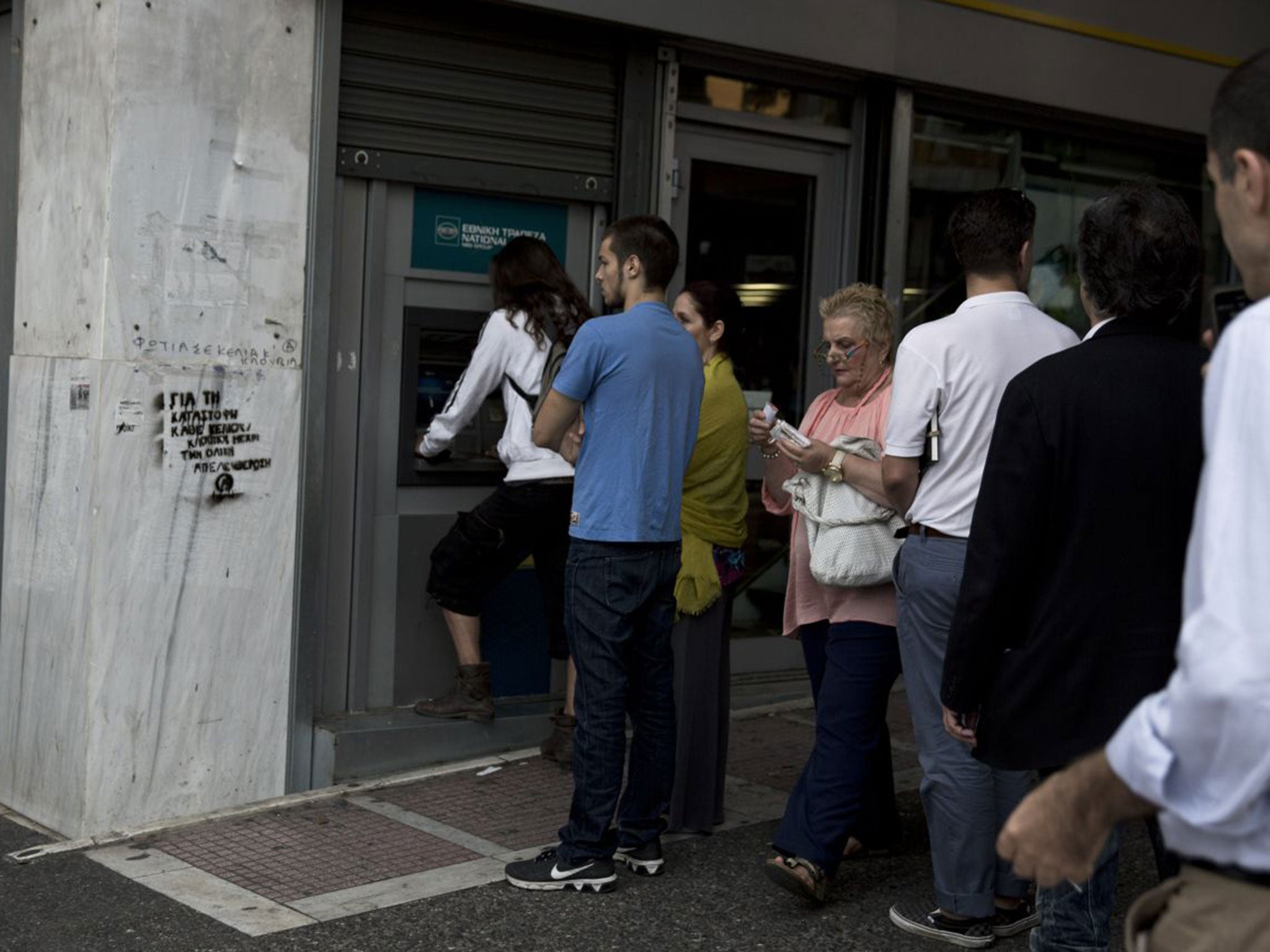Greece crisis: ECB injects emergency cash into Greek banks for third time in six days
The trickle of cash out of the Greek banking system shows no signs of abating

The European Central Bank has stepped in with a third cash injection to prop up Greek banks, according to Reuters.
The emergency liquidity comes after Greek bank account holders pulled an estimated €4.2 billion from Greek lenders last week after talks between the Greek government and its European lenders turned acrimonious.
A telephone meeting by the ECB’s governing council on Monday decided to raise the cap on emergency liquidity for the third time. The original cash limit was raised €1.1 billion to €84.1 billion on June 17. A further €1.8 billion was agreed on Friday.

But the trickle of cash out of the Greek banking system shows no signs of abating. Pre-ordered withdrawals for Monday are reported to have reached €1 billion.
The liquidity arrangement will help to prop up the Greek banks while Tsipras tries to come to an agreement to release further bail out funds. Greece must make a debt repayment of €1.6 billion to the International Monetary Fund by June 30. To do that, it must 'unlock' a further €7.2 billion in aid by agreeing on reforms to cut government spending.
Why is Monday so important?
Monday is being described as the ultimate deadline for the agreement to allow time for the money to be transferred once an agreement has reached.
It also allows further time if talks fail again – though meetings later in the week are likely to be complicated by a European Council meeting on Thursday and Friday that will take up the time of those needed during Greek talks.
On Sunday, prime minister Alexis Tsipras submitted a new proposal for reforms in Greece. The proposal are due to be discussed by Eurozone leaders on Monday as they attempt to break the deadlock.
European Commissioner Martin Selmayr said on Twitter that the new proposals were a "good basis for progress at tomorrow’s EuroSummit".
He described negotiations as "eine Zangengeburt" or "a forceps delivery".
Join our commenting forum
Join thought-provoking conversations, follow other Independent readers and see their replies
Comments